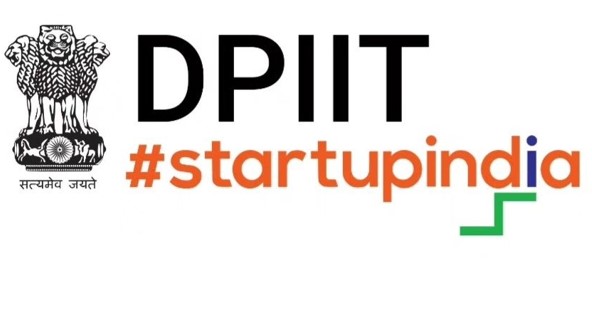If you hear Startup India, you might think it would only be for Indian founders. But to many U. S. entrepreneurs, investors, and technology companies, the term represents far more. It opens a gateway to new markets, talent pools, coupling, and cross-border innovations.
In this guide, we will explore what Startup India means and how it operates, also from the American perspective.
What Is Startup India?
To begin with, the Government of India launched Startup India in 2016 as a flagship initiative to promote entrepreneurship. Specifically, it falls under the Department for Promotion of Industry and Internal Trade (DPIIT).
The program benefits startups with less regulation, tax concessions, funding, and technical support. It supports new businesses in developing faster while ascending the complicated market structure of India.
The key offerings include:
- Certification as a “Startup India certified startup”
- Access to government funding, mentorship, IP services, and incubators, so more easily
- Simplification of legal and compliance procedures
The Main Benefits?
Let’s dig into the key benefits of Startup India, especially for founders looking to scale efficiently:
- Tax Exemptions
Moreover, startups enjoy tax exemptions for 100% of their profits during any three years within the first ten. As a result, this tax relief acts as a financial buffer, enabling startups to reinvest their revenue directly into growth.
- Patent, IPR Assistance
In addition, startups are provided with fast-track IP approvals and up to an 80% discount on patent filing costs. Consequently, this encourages innovation while significantly reducing legal expenses.
- Simplified Compliance
Startups may also self-certify themselves for several key labor and environmental laws. There are also fewer government inspections for the first few years; processes for winding up are quicker as well, often only within 90 days.
- Fund Raising
Furthermore, startups can raise early-stage capital through the Fund of Funds for Startups (FFS) and the Startup India Seed Fund. These funding options are especially helpful for founders who, otherwise, may not secure traditional venture capital backing.
- Access to Public Procurement
Additionally, certified startups can submit bids for government contracts without adhering to conventional turnover or experience criteria. As a result, this opens up significant business opportunities and helps level the playing field for smaller startups.
- Mentorship and Incubation
Finally, Startup India provides the founders with incubation centres, mentors, and innovation labs across the country. Such resources are able to expedite the growth of startups at an early stage.

Who Can Avail Benefits Under Startup India?
To avail of the benefits, the startup should fulfill the following criteria:
- Less than 10 years from its incorporation.
- Annual turnover less than ₹100 crore (~$12 million USD)
- Incorporated in India as a Private Limited Company as an LLP, or a Registered Partnership firm
- Working towards innovation, development, improvement, or scalability.
- After satisfying these requirements, the startups can apply for recognition through the Startup India portal
.
Startup India in Numbers
As of late 2024:
- More than 157,000 startups have been recognized under the scheme
- Hundreds of incubators and accelerators have started in the process
- The major sectors: AI, agritech, cleantech, biotech, fintech
So, it is safe to say that Startup India has turned into one of the world’s most prominent government-backed startup ecosystems.
Why Should U. S. Entrepreneurs Care?
Now, you might wonder: Why should American founders or investors care about Startup India? Let’s get down to it.
- Access to Fast-Growing Markets
India’s middle class is growing very fast. U. S. startups can enter this customer base by working with Indian startups operating under the Startup India banner.
- Technical Skills
India churns out millions of engineers and developers every year. Hence, working with recognized startups creates lean-cost access to highly skilled technical talent for U. S. firms.
- Investment Prospects
Numerous Indian startups are still undervalued compared to their American counterparts. So, this can be an opportunity for American VCs and angel investors to get in early and reap the benefits of a fast-growing market.
- JVs and Licensing
Thereafter, U. S. companies can co-develop or license products to Indian partners. These activities should be supported and de-risked by Startup India.
- Tap into Indian Incentives
American businesses can also indirectly enjoy benefits from tax incentives, grants, and other perks by setting up Indian companies or teaming up with DPIIT-certified startups.
How to Engage (From the USA)
Here’s how you can leverage Startup India Inc. if you are in the U. S.:
- Partner With Indian Startups
Start by identifying DPIIT-certified startups in industries of interest. The Startup India portal or any of India’s state incubator directories will serve well to point you in the right direction.
- Co-Develop or Offer R&D Outsourcing
Your IP can be licensed or solutions/co-developed with Indian startups. Their low-cost R&D and IP incentives will cut down your time-to-market.
- Fund Through Local VC Networks
Foreign investors can participate in the India Fund of Funds through the registered AIFs. These are being managed by SIDBI with the support of the Government of India.
- Set Up Indian Entity
If you wish for long-term expansion, then go for a branch or subsidiary in India. However, recognition under Startup India shall make it easier to incorporate and comply.
- Use Incubators or Hackathons
Engage in cross-border startup events, exchange programs, or government-backed challenges. These platforms usually result in partnerships, pilot projects, and/or customer leads.
Challenges to Stay Away From
There are drawbacks to Startup, India:
- Delays in Approvals: Ministerial delays may be there in providing funds or a certificate. Patience and perseverance are a must.
- Eligibility Confusion: Some start-ups just apply without qualifying and get rejected. So, do check yourselves.
- Uneven State Implementation: All regions in India do not offer the best level of support. So, look toward Bangalore, Delhi NCR, and Mumbai.
- IP Risks: If sharing proprietary technology, please ensure that NDAs and IP clauses are watertight.
The Final Thought
Startup India is more than just a national title. Startup India is the gateway for United States entrepreneurs and investors into one of the world’s most vibrant startup ecosystems.
Whether you want to invest, collaborate, outsource, or grow globally, knowledge of and involvement with the Startup India ecosystem will give your business a competitive advantage.
Supported by the government, available talent, and scalable innovation, Startup India is not just an opportunity for India — it can be yours.
